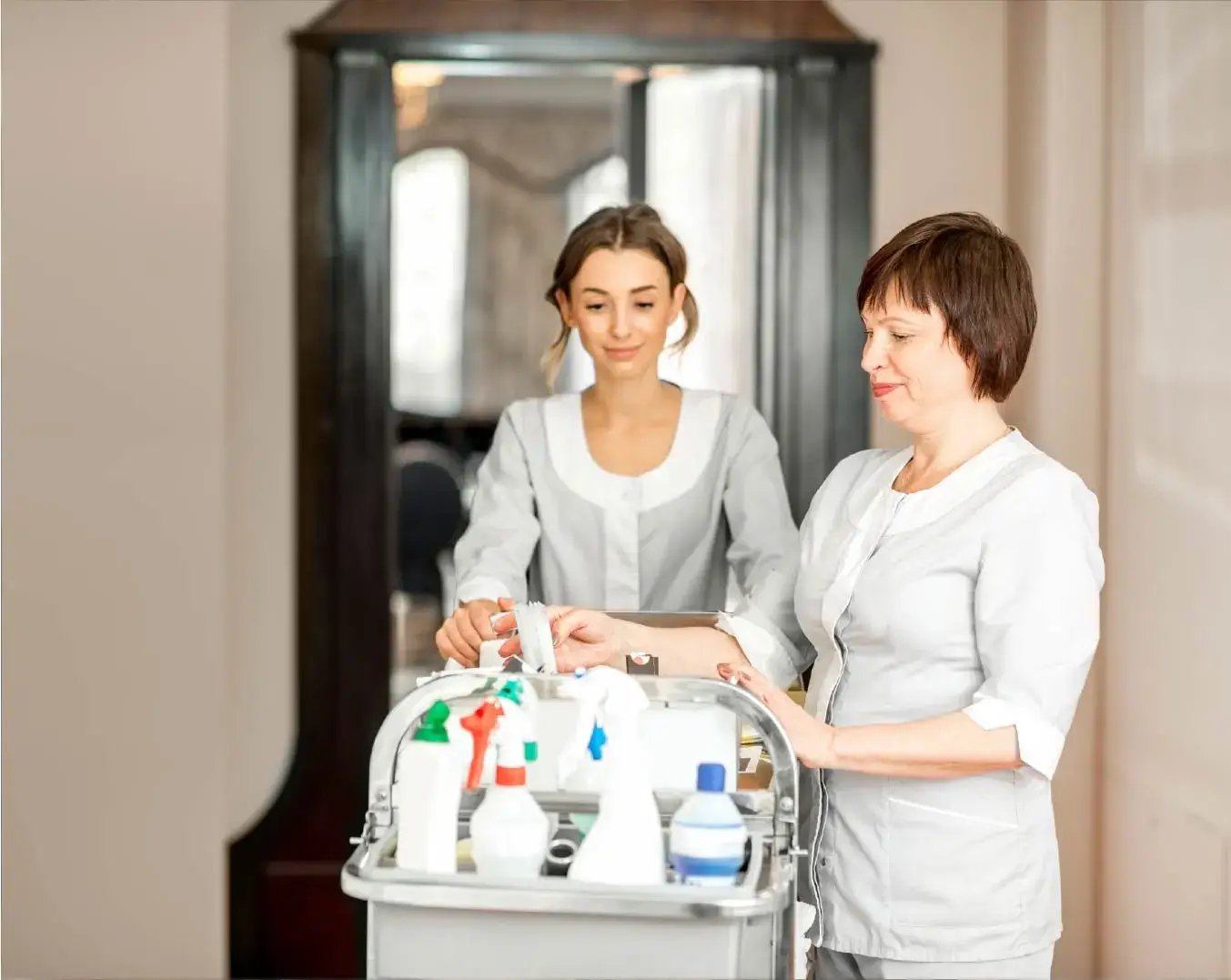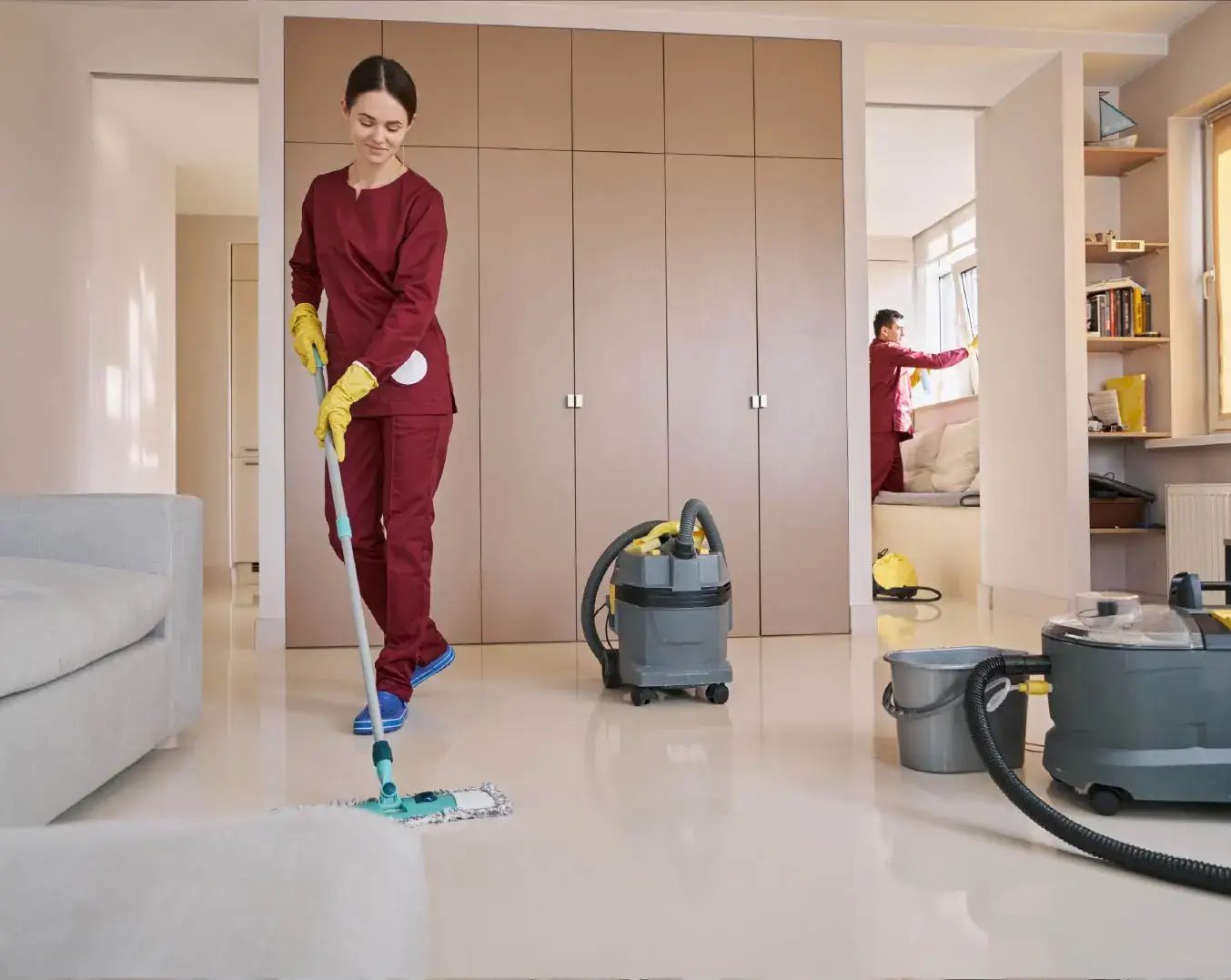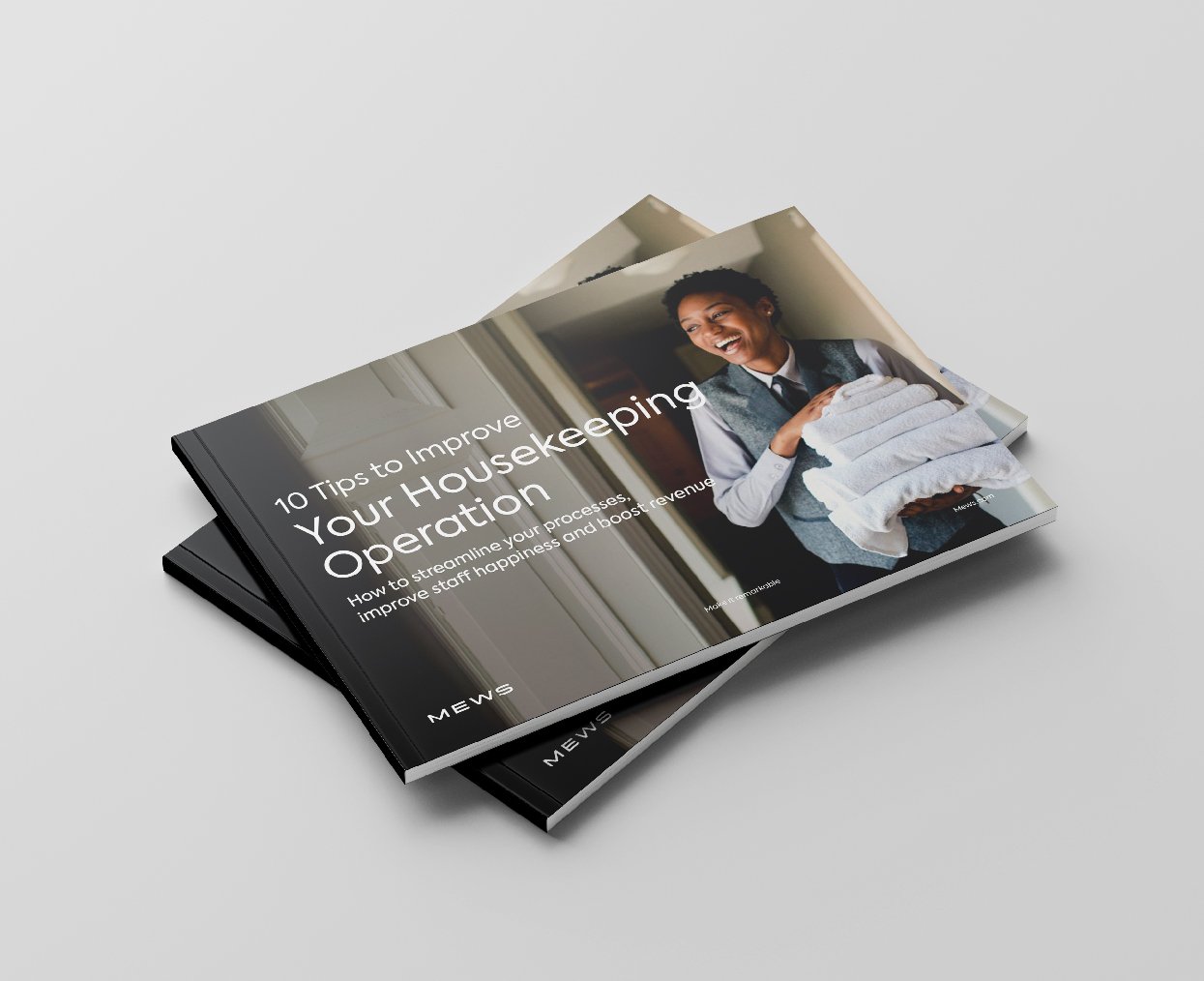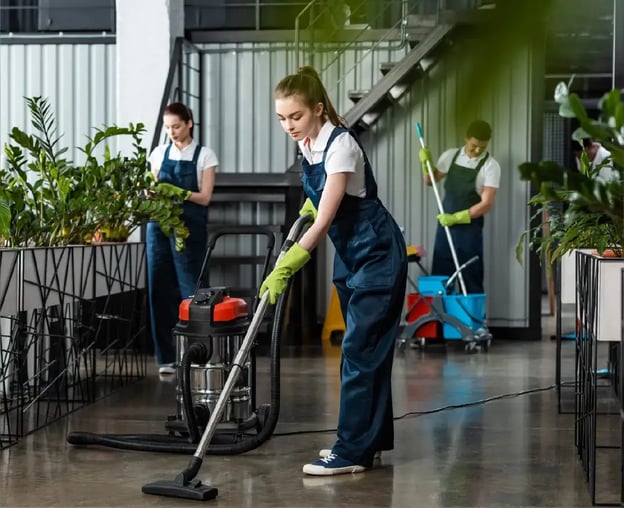Hotel cleaning protocols are hugely important. They help your staff be more productive because they know what's expected of them, all while prioritizing guest health and safety. Room cleanliness contributes most to guest satisfaction and positive reviews.
Let's look at cleaning protocols in more detail, from the benefits to procedures you can adopt today.
Table of contents
What are cleaning protocols for hotels?
Cleaning protocols in hotels are the procedures and standards that ensure cleanliness, hygiene and guest satisfaction. Typically, these protocols cover different hotel areas (shared spaces, dining area, guest rooms and the back office) and define how to clean and maintain them regularly.

Why are hotel cleaning protocols important?
Hotel cleaning protocols and hotel housekeeping software are fundamental for creating a safe and welcoming environment for guests. They also protect your brand’s reputation and integrity by positively contributing to guest satisfaction. Furthermore, hotels must live up to certain degrees of health and safety standards, so proper adherence to these procedures is vital to avoiding sanctions.
Cleanliness standards also help prevent the spread of germs and bacteria, which is especially important in shared spaces. By implementing high standards, hotels also mitigate the risks of negative reviews or complaints. Working in a clean and orderly space does wonders for motivation and productivity.
The benefits of cleaning protocols
There are many benefits to keeping your hotel cleaning standards high. Learn how to improve housekeeping operations, and keep reading to discover all the ways cleanliness benefits your property.
Guest satisfaction
The cleaner your hotel, the higher guest satisfaction. And positive reviews are every hotelier's dream. When guests feel like you prioritize their health and well-being by meeting or exceeding cleanliness standards, they are more likely to have a positive experience at your hotel. Find out 6 ways to improve guest satisfaction.
Brand reputation
A hotel's reputation reflects the attention put into maintaining its facilities. Your property is your business card, creating an unforgettable first impression when guests enter the lobby. Hotels with high standards of cleanliness give guests a reason to return and help strengthen the brand's image by having a lot of loyal guests.
Risk management
Good hygiene prevents the spread of germs, bacteria and viruses. The more pride your hotel takes in cleanliness, the less likely your staff will have to handle negative reviews and complaints about sub-standard cleanliness. Risk management helps you prevent cross-contamination that could damage your hotel’s reputation.
Employee health and safety
It's not only the guests you need to worry about. Keeping your employees healthy and safe so that they can work and provide excellent service should also be your priority. Cleanliness is crucial for a positive working environment. Reducing the spread of germs and pathogens creates an orderly space where it's easier to concentrate on work.
Training and compliance
A set of protocols lets you more easily design training and education about cleaning practices to follow health and safety regulations. The next step is performing regular audits to ensure adherence to those procedures. Train your staff and encourage them to embrace housekeeping trends.

6 most common cleaning protocols
Cleaning protocols change depending on the area in the hotel. Because hotel housekeeping costs per room are a big part of your hotel's bottom line, you should know about the common protocols to ensure compliance with standards. Let's look at some of the most common ones per area.
Guest rooms
Let's start with guest rooms – your staff should disinfect first and then clean. Disinfecting means wiping down high-touch surfaces, light switches, remote controls and doorknobs with antibacterial spray. Afterward, housekeeping can change bed linens, vacuum carpets and clean bathrooms. When guests stay longer than a few days, changing towels and bed linen will also be necessary.
Public areas
High-traffic areas should also undergo regular cleaning and disinfection. It includes daily vacuuming, cleaning bathrooms and furniture, mopping floors and opening windows to air out these areas. Make sure your staff frequently cleans lobbies, elevators, corridors and reception desks throughout the day.
In areas like gyms, pools and business centers, it’s also a good idea to wipe down equipment and sunbathing chairs to prevent the spread of germs.
Food and beverage
If your hotel offers food and drinks, you should regularly clean and sanitize tables, chairs, menus, and food preparation surfaces. Always label ingredients and food to avoid spreading pathogens by serving expired food. Dishes should be put through a sanitization cycle in the dishwasher to kill germs before serving to another guest.
Laundry
Laundry services are a crucial area where strict hygiene standards must be implemented to avoid cross-contamination. Using hot water and bleach for white linens and towels will kill germs and bacteria. Those in the laundry services should also regularly wash their hands as they touch used sheets and towels to avoid the spread of germs.
HVAC systems
Here's another must – regular maintenance and cleaning of filters used for air conditioning, heating and ventilation. It lets guests and staff enjoy fresh, healthy air without airborne contaminants.
Employee areas
Don't neglect back-office areas such as the staff kitchen, locker rooms and break rooms. All of them should be regularly cleaned and sanitized. Encourage staff to regularly wash their hands and let them stay home when sick to minimize the risk of more employees falling ill.
Conclusion
Hotel cleaning protocols protect everyone staying and working in a hotel from public health issues. They also increase guest satisfaction while ensuring operational excellence. Prioritizing cleanliness is more than just adhering to standards – you want to create an environment where people enjoy staying and working. Consider it a crucial part of brand integrity.
Looking to elevate your housekeeping standards and boost guest satisfaction?
Download our guide "10 Tips to Improve Your Housekeeping Operation"


2026 Hospitality Industry Outlook
Download now
Table of contents
Hospitality hot takes straight to your inbox



.webp)
